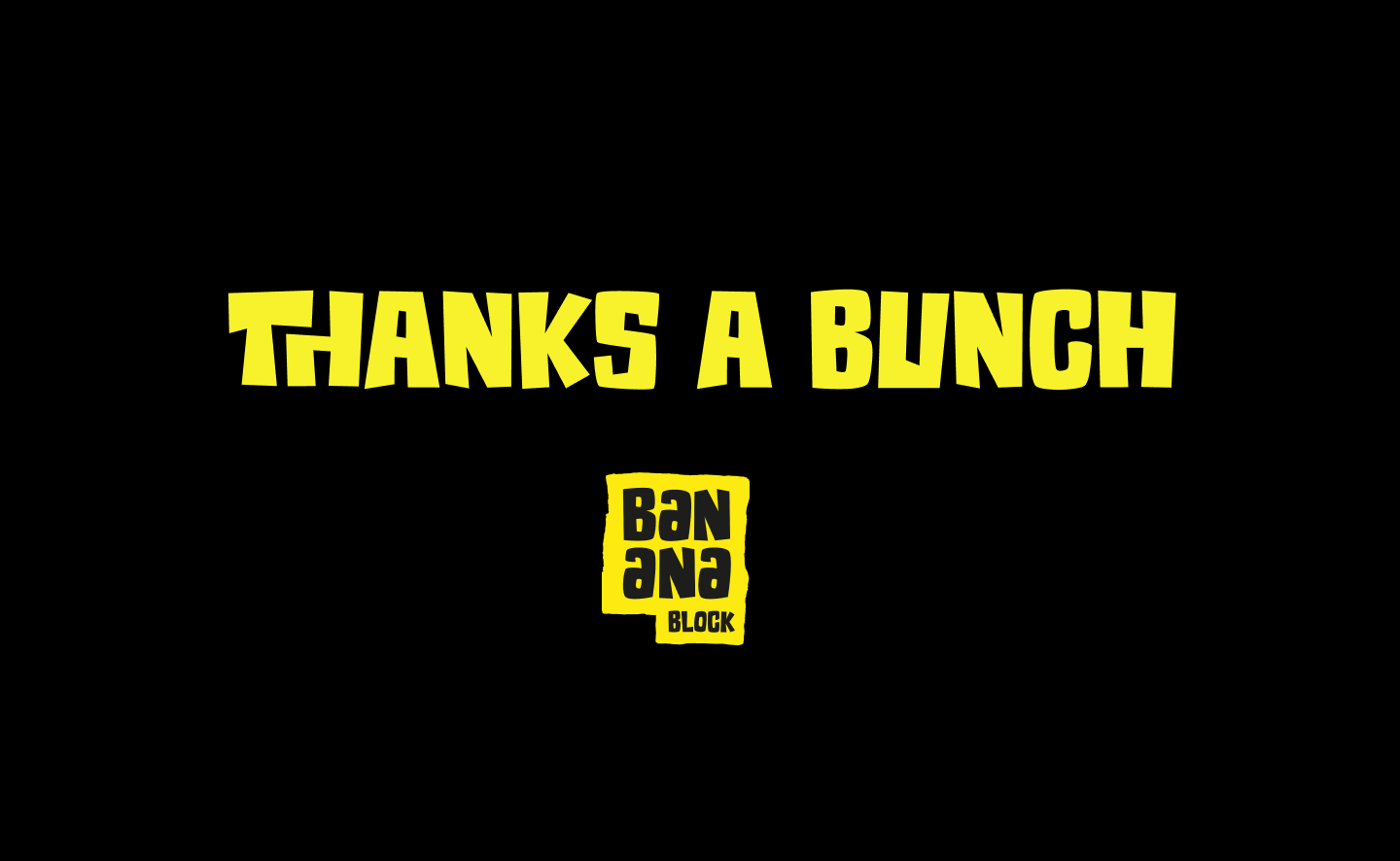
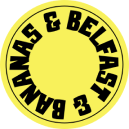
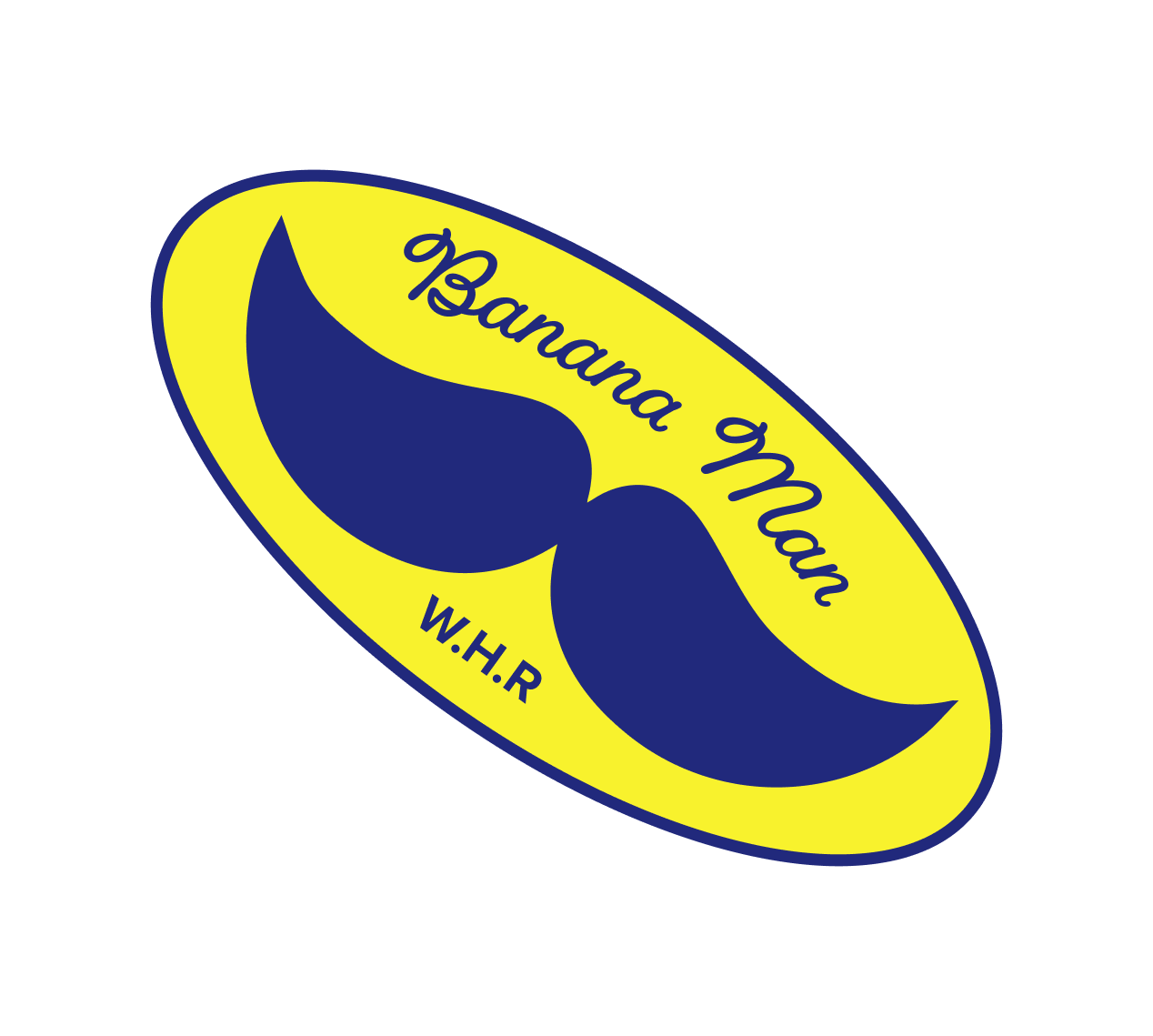
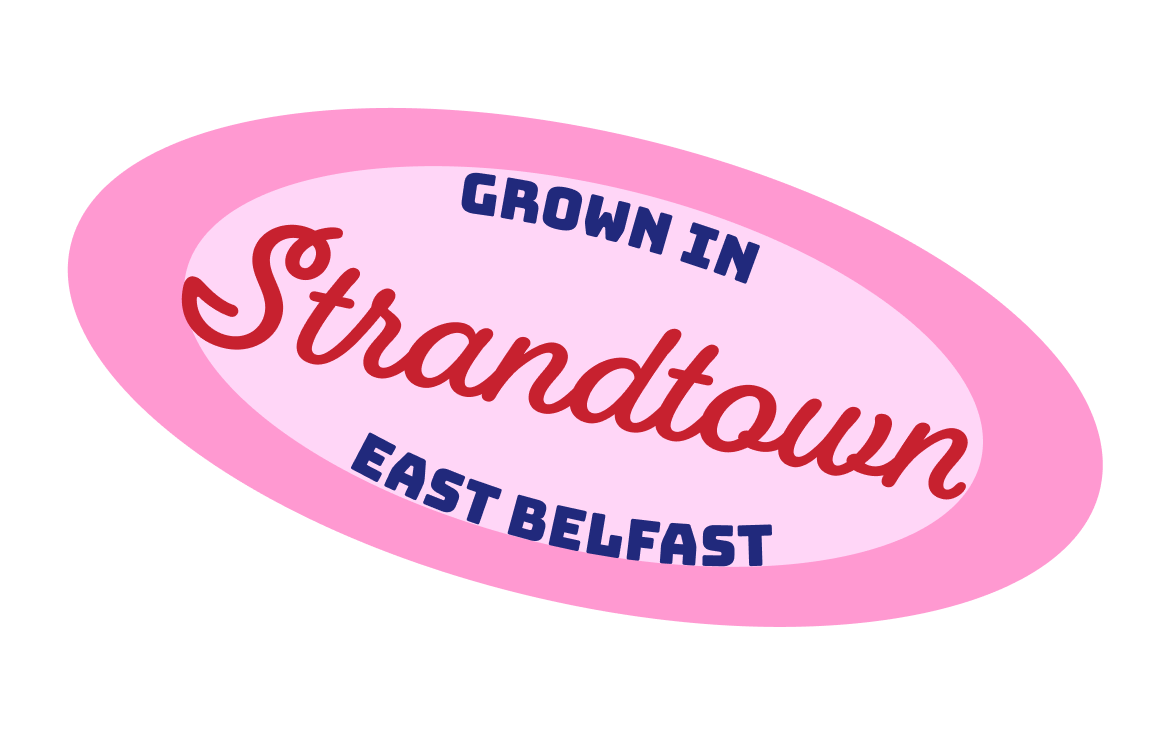
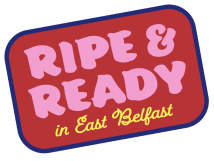
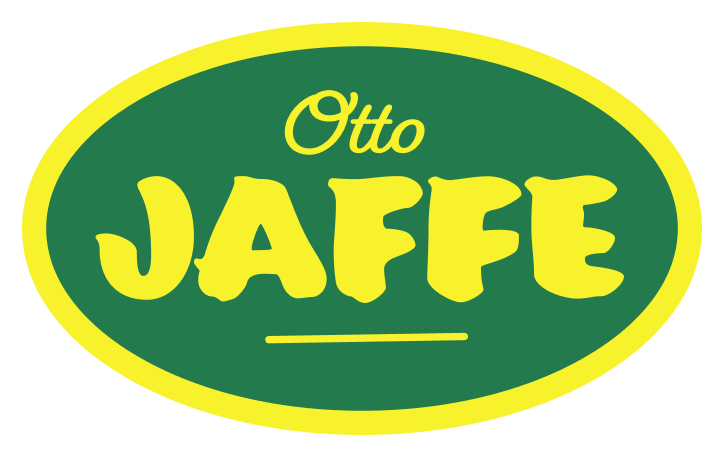


















Portview Trade Centre, 310 Newtownards Rd, Belfast BT4 1HE
A glimmering hope in recent uncertain times is the idea that we
have been given an opportunity to change
things for the better. Aspirations like inclusivity and diversity that have long since echoed in the
galleries of museums and heritage institutions now seem to cut through with greater purpose, intent and
urgency. Concrete actions and bold steps forward must now be taken to grasp change, moving us beyond
rhetoric and into reality.
We invite you to see our newest venture at Portview Trade Centre through this lens of progress. It is a
project built on the principles of partnership, sustainability and social impact. You will hopefully find
it original, curious and perhaps surprising. At National Museums NI, it is one of our most important steps
forward into a future where museums and heritage sit at the centre of civil renewal and social
change.
Whilst we know that we might not end up with bananas, we are confident that it will be a project ripe with
new ideas, new insights and new connections.
Kathryn Thomson CEO
National Museums NI
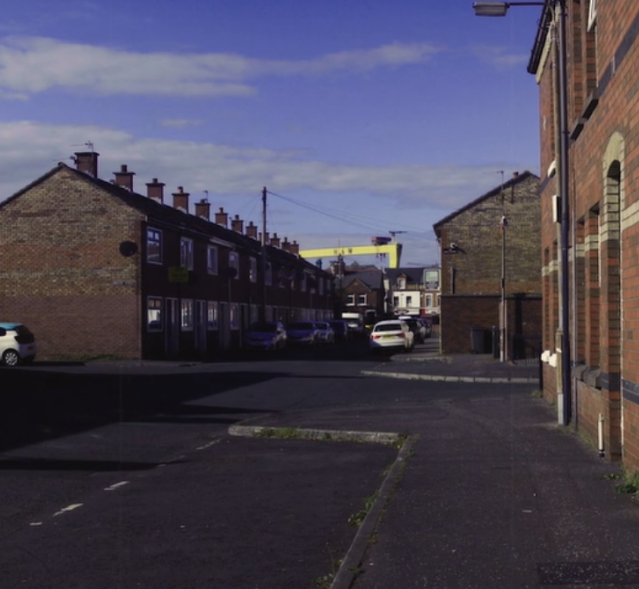
Portview, formerly known as Strand Spinning Mill, has been a
pillar of the East Belfast community in Northern Ireland since 1911. However, only 50% of its 170,000
sqft is occupied at below-market rates, operated by a social enterprise. Positioned on Newtownards
Road, a key connection between the city centre and Titanic Quarter, Portview holds historical
significance as a symbol of the once-thriving linen industry that sustained the local community.
Today, it incubates a variety of high calibre SMEs including RIBA award winning architects, an Emmy
nominated production house and one of the top 50 coffee roasters in the world. This resulted from a
2020 National Lottery Heritage Fund grant, which enabled a multidisciplinary team to craft a
sustainable master plan and economic case for both the site and the wider area
(https://portviewbelfast.org/).
This endeavour
bore fruit in the form of Banana Block, a pioneering
Living Museum and Cultural Venue developed in partnership with National Museums NI. Since its
inception, Banana Block has drawn over 100,000 visitors, marking a groundbreaking achievement within a
community context.
The proposed initiative aims to solidify Banana Block's legacy as a permanent fixture in Portview by
incorporating capital upgrades to expand its educational and training offer and a community revenue
program to amplify its impact.
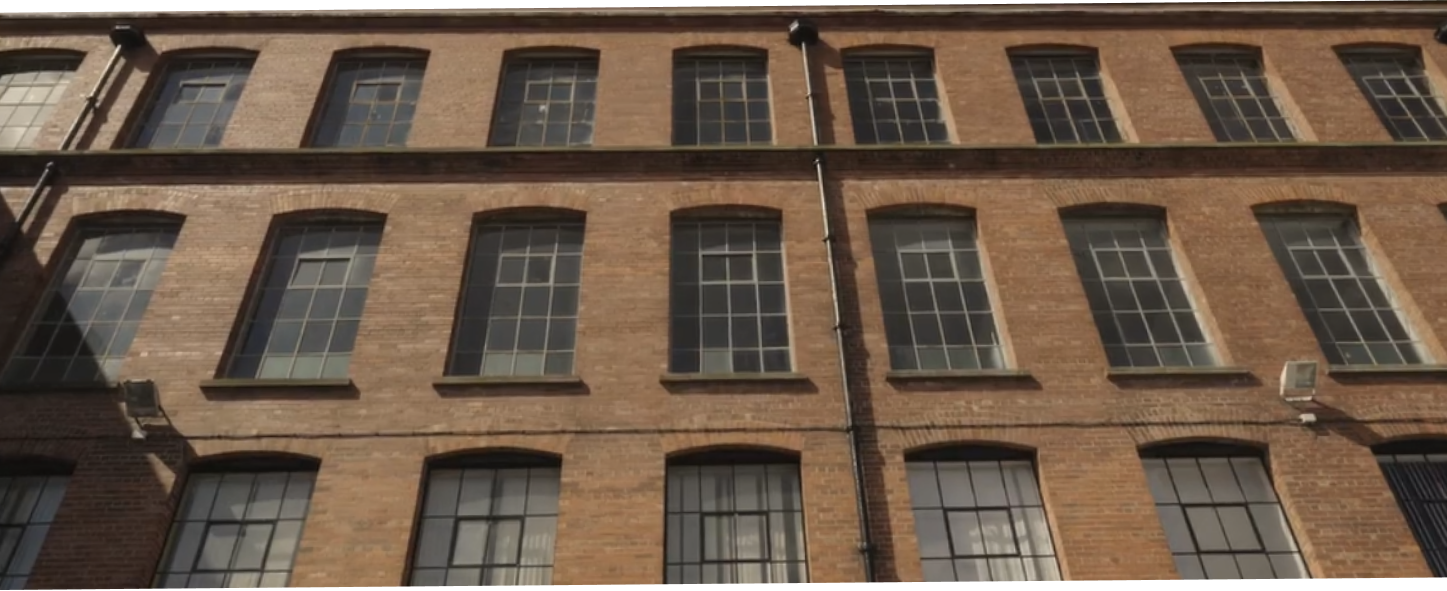
In the early stages of 2020, a co-design process was initiated, laying
the foundation for Portview's sustainable master plan. Through the active involvement of citizens,
stakeholders, and tenants, five engagement themes emerged, shaping the site's future proposition.
This approach, grounded in the authentic participation of the Portview community, led to
partnerships, strategic insights, and a masterplan shaped by over 400 community members, including
120 youth. Collaboration remains at the core of the Portview masterplan, with the Banana Block
serving as a living museum and event space, reflecting the needs voiced by the community.
The reimagining of Portview has crystallised around five pivotal themes: heritage, education &
training, resilience, employment, and cultural tourism. These themes will serve as the guiding light
for the development of Portview and its associated projects. The masterplan and its components are
carefully designed to cater to the needs of the East Belfast community, tackling issues of
deprivation, leisure deficits, and employment scarcity. By embracing the shared history, present,
and future of the site, the plan aims to create a unified experience that transcends differences.
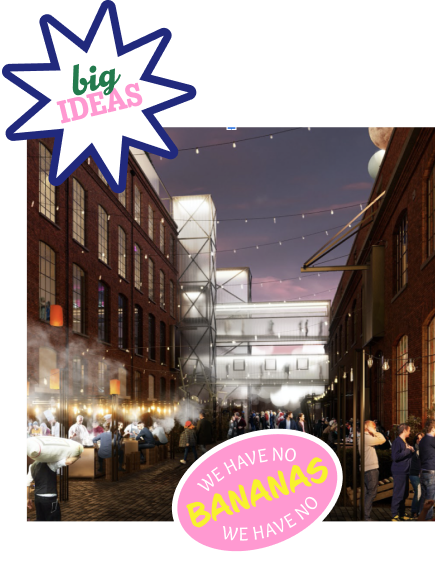
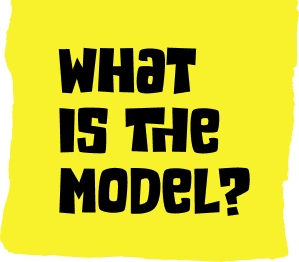
We will redefine what it means to be a ‘living museum’ with an active focus on creating the future, not re-creating the past. It will be alive through the beating pulse of people getting involved, connecting and creating, with heritage and with each other. It will be alive because it never stays still, always reinventing its impact through co-created ideas and dynamic partnerships. We will achieve this through three organising principles.
We will grab people’s attention with original and surprising ideas, changing perceptions of what heritage is and who it is for.
We will be an active platform for promoting sustainable ways of living, working and thinking.
We believe in the power of creativity and will bring opportunities for learning and skills development to one of NI’s most socially deprived areas.
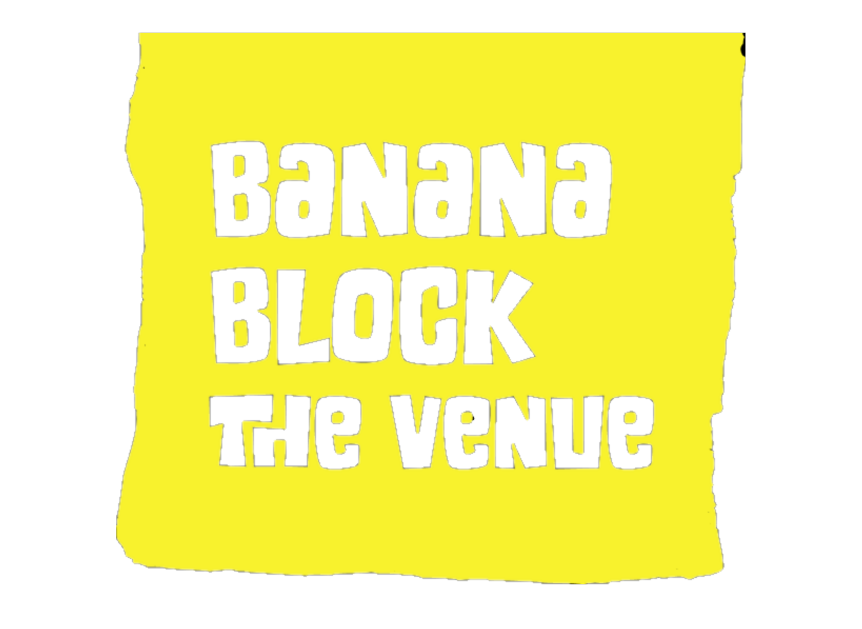
Banana Block is the cultural
venue within
the museum consisting of three typologies:
Weird and wonderful people exhibiting their process as a living offer to visitors, from music making to mushroom growing and cheese curing.
A flexible events auditorium hosting programmes and performances.
A street art exhbition of heritage tales contemporarily displayed in an architectural setting.
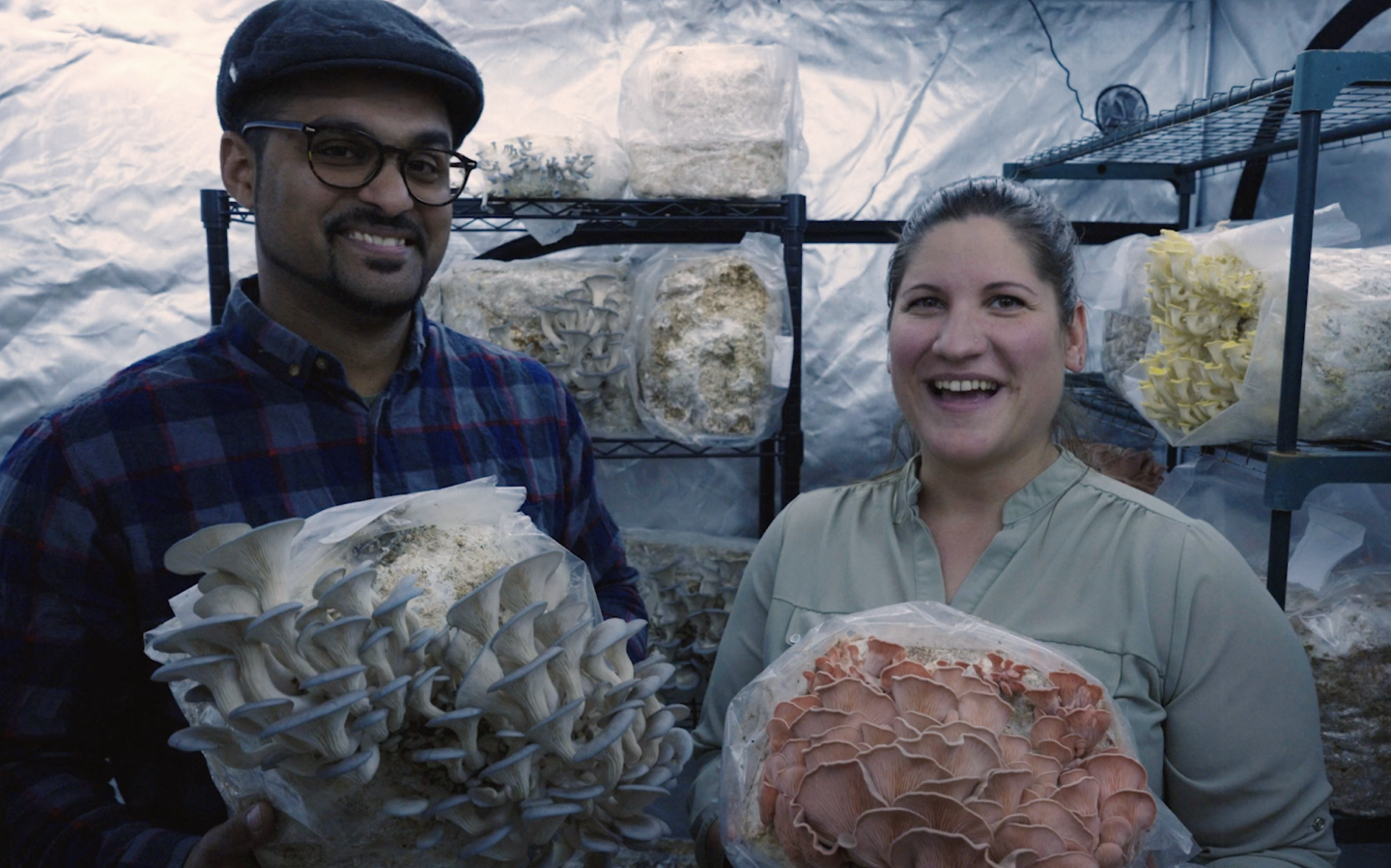
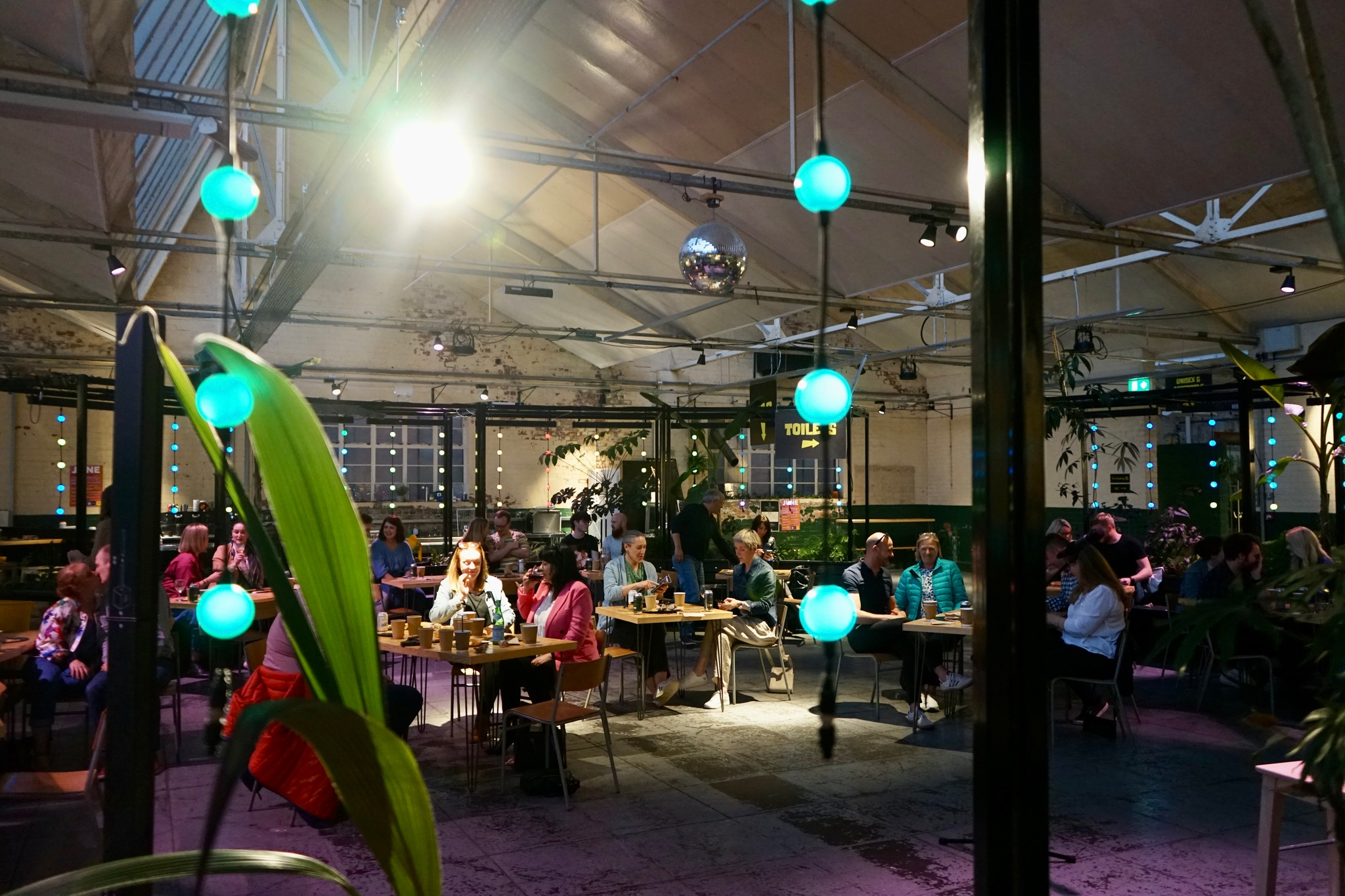
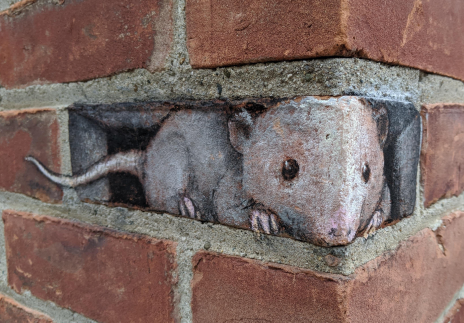
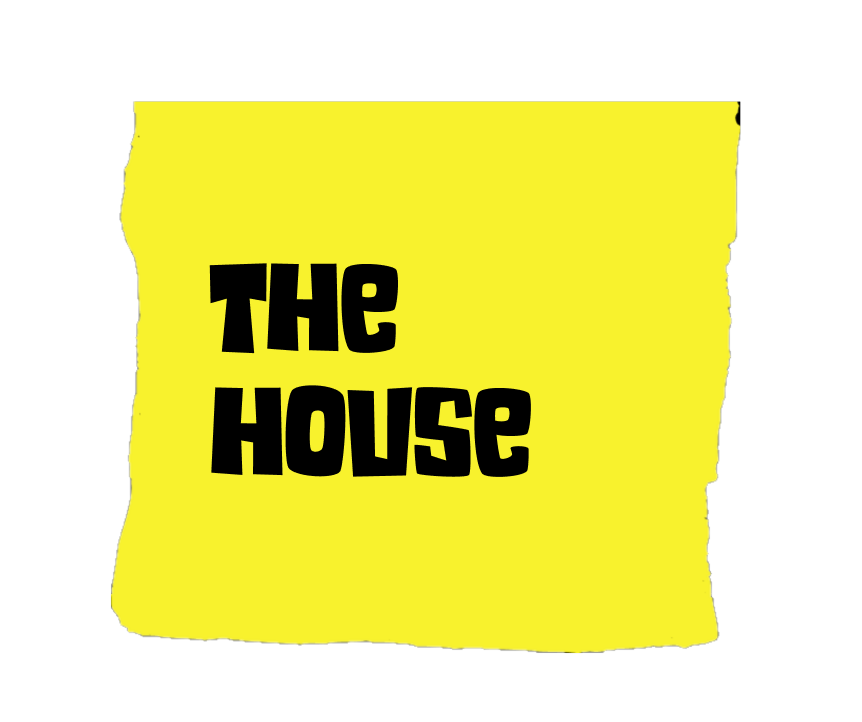
The House will be a creative canvas encouraging community participation in the project. Community partners will in turn take over the space offering diverse perspectives and alternative views on heritage, sustainability and creativity. They will express their unique interpretations of the mill through what matters to them at a community level, both in the street and at home. This will be supported by a National Museums NI takeover and Artist Residency Programme funded by Belfast City Council.
Mill

Street

Home

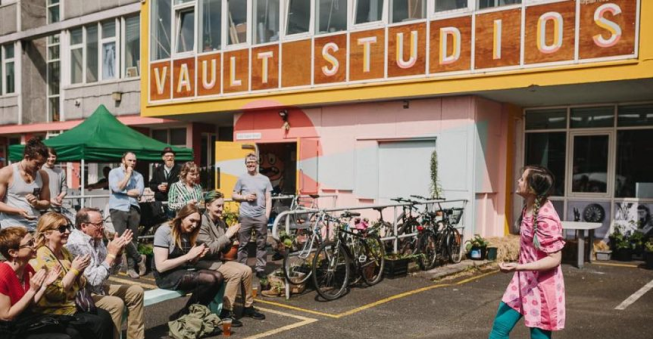
Prospective takeovers with the East Side Arts Festival and local arts collective Vault.
The proposed initiative aims to solidify Banana Block's legacy as a permanent fixture in Portview by incorporating capital upgrades to expand its educational and training offer and a community revenue program to amplify its impact. This community revenue program will create a new philosophy and framework for inclusion and cohesion and deliver a variety of truly collaborative, diverse, and unique experiences within a local heritage setting. We want our work to attract as many people, from all walks of life, as possible to instil truly positive change in community spaces and attitudes. We propose the following:
Alongside our capital upgrades we are presenting a unique opportunity for
your support to enable the realisation of three forward-looking initiatives in the heart of East Belfast.
These initiatives are designed to shape the long-term offering of Portview and its provision of
transformative shared spaces and services for the local area. These groundbreaking programs will
seamlessly intertwine within our dynamic living museum area at Banana Block. This proposal is set to
involve an estimated 90,000 locals and visitors in activities that actively support social cohesion
through engaging a diverse mix of individuals, communities, networks, and creative entities.
In light of the insights gained during this project, we will subsequently develop a digital resource
package. This toolkit will serve as an evidence base for best practice community cohesion projects and
help enable future projects to learn from our experience through a community-orientated and localised
approach. This model is grounded in authentic experiences, rigorously tested, and co-crafted in
conjunction with the community.
With your financial support, our overarching aim is to foster a more connected society. This will be
achieved by expanding the availability of transformative communal spaces, services, and programming. These
enhancements will actively contribute to the cultivation and integration of peace and reconciliation,
making a meaningful and lasting impact.
Through the learnings of these intersecting initiatives, our diverse range of desired results are founded on generating positive change for a wide variety of communities within a heritage setting. From reinvigorating traditions of soapbox races through digital craft to growing communities through a green-fingered urban farm, and engaging with young people through music, dance, and performance, we hope to achieve the following overarching outcomes:
In collaboration with Grand Union Birmingham and Mash Direct
A participatory three year programme centered around cultivating our ‘Urban Farm’ through building a
community of growers and tenants.
IMAGE: Urban Farm at the Grand Union Birmingham


A participatory three year programme centered around cultivating our ‘Urban Farm’ through building a community of growers and tenants. We plan to host workshops, talks, tours, and dining events around the concept of closed loop agricultural systems and ‘farm to fork’ education operating within heritage settings and neighbourhoods.
This is an opportunity to reach out to a diverse range of communities from across Belfast through cultivating skills in urban farming. By engaging locals throughout, this work will showcase alternative ecosystems that value transparency and visibility to close the knowledge gap between urban populations and their food sources. In tracking the carbon footprint and supply chain of our onsite tenants we will equally encourage young people to participate and learn about growing bananas, planting, developing produce, and its connection to the industrial heritage of East Belfast. Through a major partnership with Ireland's largest potato supplier, Mash Direct, we will also develop agri-tech skills access within the community and reduce carbon footprint through closed loop systems with onsite tenants. As former owners of the mill itself in the form of Mackies & Sons, Portview’s textile machinery and engineering group, this partnership draws on the site’s socio-cultural histories to bring present and future industries closer together.
The programme will also establish synergies with our
partners National Museums NI’s existing work in promoting sustainable lifestyles and environment
best practice, which is being foregrounded at the nearby Ulster Folk Museum through an exciting new
partnership with The Conservation Volunteers. The programme will create tangible environmental and
heritage links between the two projects creating opportunities for growing your own, making your own
and improving wellbeing. We will work with new and existing partners to establish and maintain
community gardens in East Belfast - in locations such as Hosford House homeless hostel - and out
towards Ulster Folk Museum each of which will provide opportunities for learning about growing,
native species, environmental protections and heritage skills.
Growing Communities will extend beyond the boundaries of Portview to facilitate a collaborative
network of local schools, community groups, up and coming food SMEs, onsite coffee roasters,
mushroom growers, and a brewery. It is an opportunity for people and place to seed, take root, grow,
and flourish together.
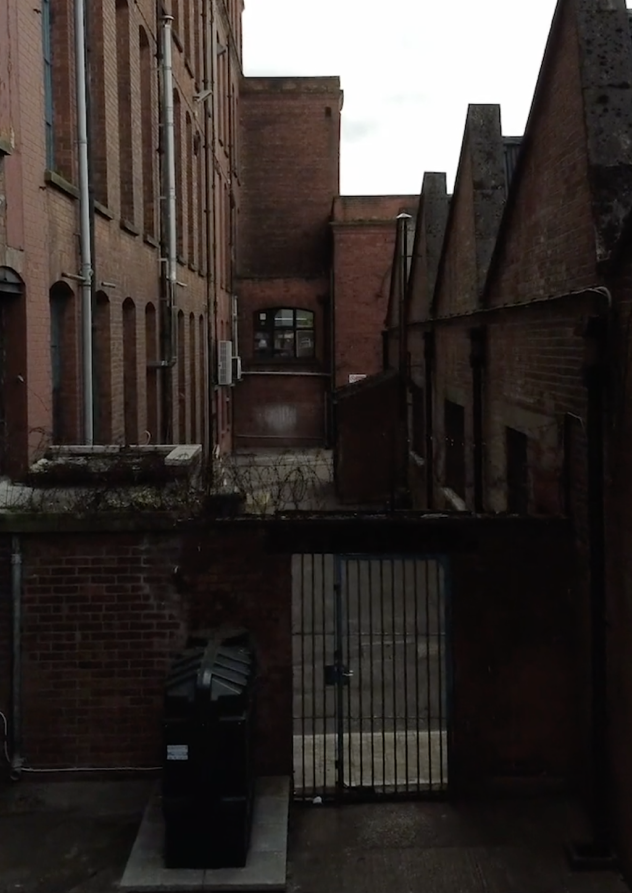
Banana
Block
Proposed Urban Farming Alleyway
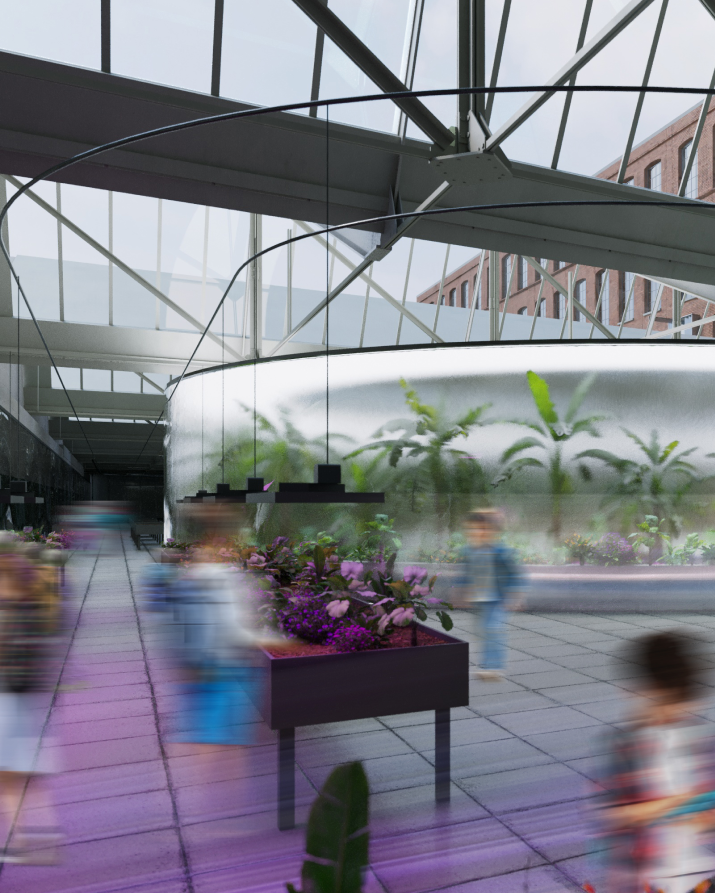
Banana
Block
A Living Museum featuring banana planters and growing workshops
Portview
Rooftop
Community Garden and growing space
Mash Direct NI, Boundary Brewery, Root and Branch, Yugo East, Freight, East Side Partnership, Vault Allotments, Hearty Growers, Microgreens NI, YMCA Belfast Victoria Primary School & Dundela Infants, East Belfast Men’s Sheds, University of Atypical, Eastside Partnership and Greenway, Aware, The Tropical Ravine, The Grand Union Birmingham (The Growing Project), The Conservation Volunteers.
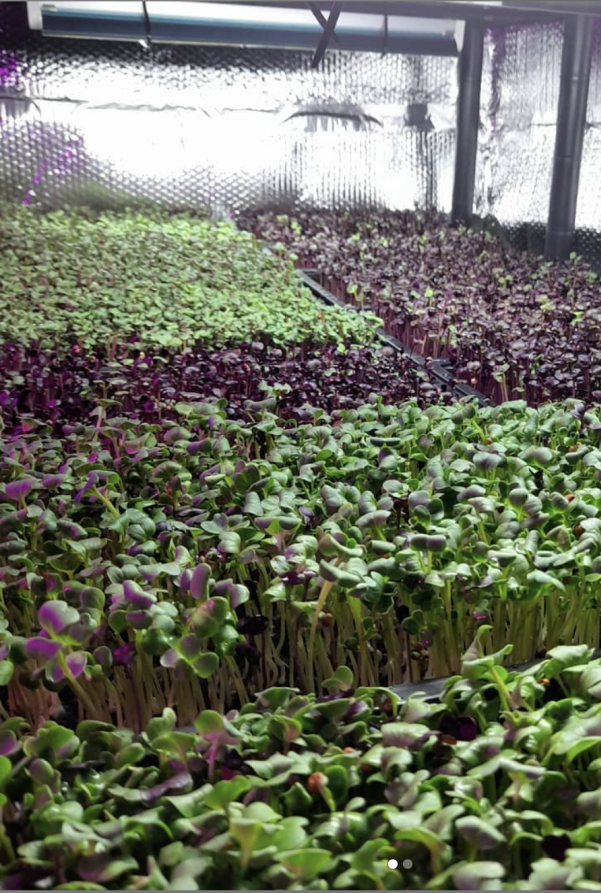
Hearty Growers
Urban Mushroom Farmers and Banana Block Tenants
In collaboration with AVA Festival (Belfast/London) and The Goethe
Institut (Germany)
An expansive events programme co-designed
with young people exploring how music and narrative
was, and can be, used as a tool to strive for inclusivity.
IMAGE: Max Cooper immersive performance in
Carlisle Circus Church (AVA Festival 2020).
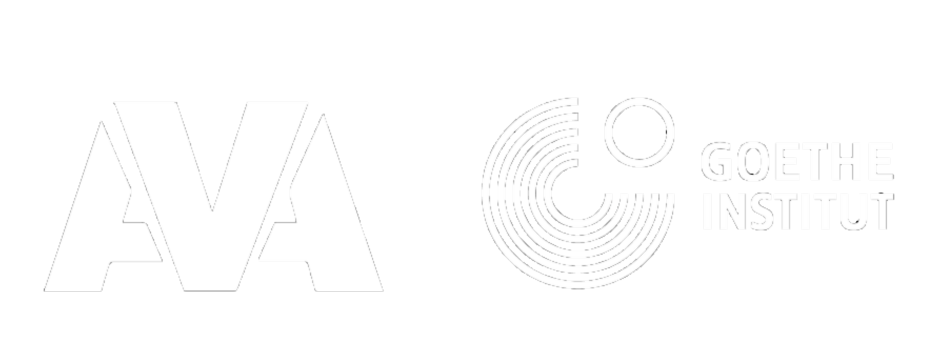
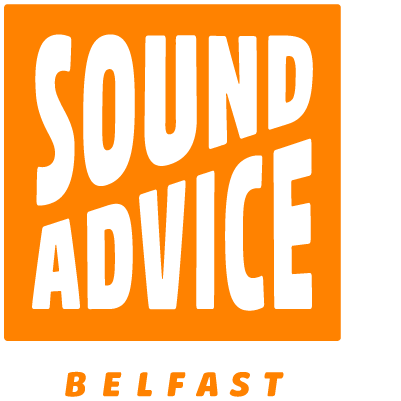
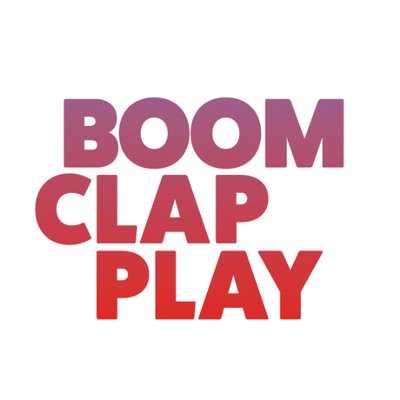
An expansive events programme co-designed with young people exploring how music and narrative was, and can be, used as a tool to strive for inclusivity. Playing with sounds of the past and present through engaging with a multiplicity of audiences, this initiative will integrate immersive audio experiences with visual performances and an exhibition of tomorrow.
We’re looking to the lost sonic landscapes of the past to employ heritage as a platform for the creation of our futures. From mill songs that united workers in spirit to sharing secret codes through abstract melody - what acoustic threads connect us to our ancestors? What would the collective spirit of the mill have sounded like in days gone by? Music and dance halls were integral community spaces to “click” with someone or dance to the latest big band classic but were equally important as mechanisms that strove for inclusion through protest and rally. Indeed, Dance music culture in Belfast, in particular, at its origins in the early 80s, transcended religious divisions to establish common lyrical ground between communities. This innovative programme will employ music as a vehicle for the creation of shared spaces and positively influencing individual and community attitudes.
.png)
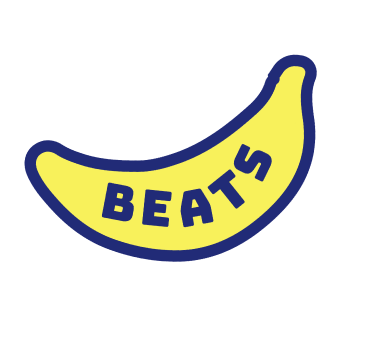
AVA Festival
Live Audio/Visual Show Recording in Portview Trade Centre
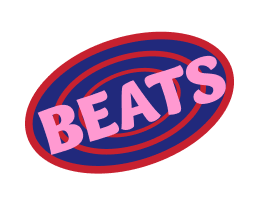
Marion Hawkes
Local DJ, Owner of Sound Advice Records and Banana Block Tenant
AVA, Sound Advice Records, Boom Clap Play, Sonic Arts Research Centre, The Goethe Institut, Pony Hawke, Bounce Culture, Resist, Belfast Met, Timmy Stewart, The Night Institute, Ayeland Productions, Nightstaff Productions, Visual Spectrum, Third Source, local schools, community groups, and charitable networks.
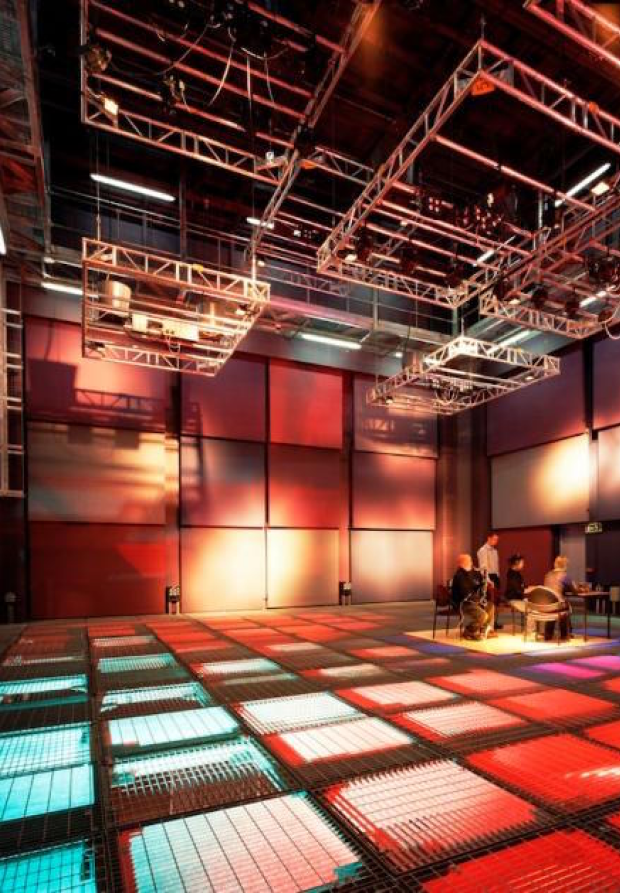
SARC
Sonic Arts Research Centre at Queen’s University Belfast
Visual Spectrum
Belfast based creative agency specialising in video, projection and visual experiences
In collaboration with Lough Mead Training
Board Ireland and Advanced Manufacturing
Training Facility, Dundalk.
A ‘pop-up makerspace’ in Northern Ireland within a heritage setting - building on crafts we know to construct new digital futures through which many things are possible.
Not so long ago local residents remember the joy of making their own soapbox racers and coming together to run them down the Newtownards Road, where Portview is situated.
Portview’s collective spirit also emerged as a true representation of how challenges of inclusion were overcome during the 1930’s mill strikes, with protesant and catholic workers marching together to ‘We Have No Bananas’ from the mill to Belfast city hall. This programme builds upon these historical forms of inclusion by marrying them with the development of skills for a modern day society in areas of digital and advanced manufacture. Learning from the past to shape the future, this will be delivered in the form of a soap box race and banana float event. As our mill is situated in an area with one of the lowest rates of educational attainment in the UK, this initiative will challenge the status quo and engage young audiences with intergenerational heritage and skills through working alongside former steel industry and mill workers. This will be facilitated through collaboration with a cross-border advanced manufacturing facility, promoting cross-border relations between the people of NI and the Republic of Ireland.
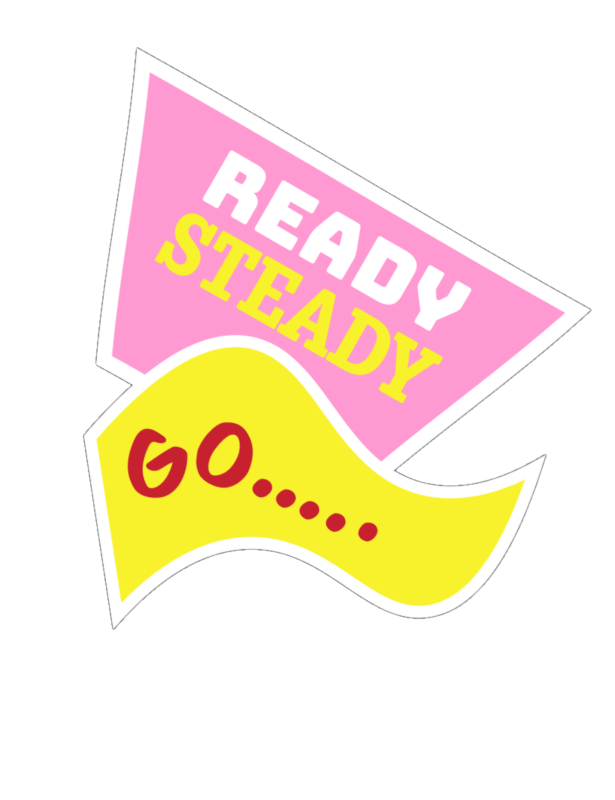
Our ambition for this programme is to
create an NI INNOVATION ECOSYSTEM by launching a fresh vision for a ‘pop-up makerspace’ in
Northern Ireland within a heritage setting - building on crafts we know to construct new digital
futures
through which many things are possible. Indeed, participants will have their eyes opened to a world
of
industry and upskill through the narrative and craft of the past. This will be achieved by
implementing
the following assemblage of big ideas:
The programme itself is composed of a
constellation of 3 x 6 week workshops and 2 x BIG BUILD days that will culminate in an annual race
event on the Newtownards Road from Portview.
This will re-establish this prized historical tradition and will be facilitated by collaboration
with designers and education experts in technology, manufacturing, innovation, and mechanics.
Our cross-community cross-border approach will ensure that participants will learn new skills
through building and designing their own Soapbox or Banana Float with access to state of the art
machinery and training thanks to the provision of in-kind support from the facility.
Project participants will take inspiration from
National Museums NI’s
‘Museum of Innovation’ initiative beginning at the nearby Ulster Transport
Museum.
A flexible and experimental space, this programme will act as an opportunity to profile our
partnership between sites.
We will look to explore collection display opportunities as part of the programme and public
exhibition offer within
Banana Block which will explore how transport and engineering collections can be used as a source of
inspiration for
participants at the start of the courses undertaken and as part of the final exhibitions which show
the participant outputs.
National Museums NI will bolster the programme through STEAM learning input and outreach
opportunities with partner relationships
for example with Queen's University Belfast and NI Science Festival.
Operating in tandem with this work, a skills and development course known as The Greenhouse Academy
will also be established
at the Banana Block. The Greenhouse Academy is a venture design and maker space which exists to
enable people to develop their
ideas for building sustainable ventures from Belfast.
This will provide an opportunity for 16- 25 year olds to
learn about startups and
innovation through the making process. To ensure a diverse range of members, participants will be
sourced through inclusive
charity networks in the city and local neighbourhood and will have access to 44 SMEs onsite with a
wide skill set range through
structured programmes from the advanced manufacturing facility.
Through the NI INNOVATION ECOSYSTEM, existing providers will have the opportunity to support skills
and knowledge development
at Portview and help accelerate these new ideas through their programmes. This series of platforms
and partnerships will drive
the development and impact of the new Greenhouse Academy - allowing young people to explore
alternative models of education and
industry professionals to support talent and opportunity.
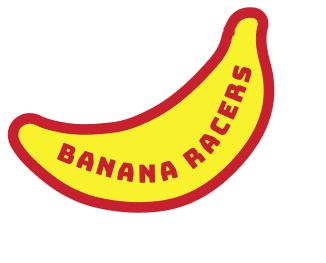
Banana
Block
Flexible and multi-functional space, here set up as a makerspace.
LMETB, AMTCE, IRELAND, East Side Arts, Belfast Unemployed Resource Centre, Digital Catapult Ireland, Invest NI, Belfast City Council (Training and Enterprise), Chamber of Commerce, Local Schools, community groups and charitable organisation networks.
An integrated digital community toolkit for the future of shared
heritage spaces
that looks at how co-designed community spaces and programmes can instigate positive change in
communities, neighbourhoods, and wider socio-economic landscapes through an engaged place-based
approach.
IMAGE: RSA Heritage model that we
will be building
on as a live study.
Through the learnings of our interconnected initiatives, the ecology of networks they will inspire, and a co-design consultation process developed over the three years, our team will deliver an integrated model and toolkit that looks at how heritage spaces and living museums can integrate with communities, neighbourhoods, and wider socio-economic landscapes through a place-based approach.
Building on the work already undertaken by the RSA
(Royal Society for the encouragement of Arts, Manufactures and Commerce) in the form of a Heritage
Index and Inclusive Growth Report, this toolkit will demonstrate the potential for heritage to
establish
more inclusive narratives and values within communities.
Through supporting heritage assets and activities, this timely model will measure how we can
proactively
overcome social inequalities and prejudices through a community-based future-focussed approach to
shaping place,
collective wellbeing, and individual livelihoods: harnessing the tangible and intangible aspects of
heritage to develop
a hyperlocal infrastructure that will build capacity for future generations.
The toolkit will also explore how national museums can increase collections access and new audience
development
through community presence, new partnerships and experimental thinking. Tapping into networks such
as the Museums
Association, the Association of Leading Visitor Attractions and the National Museums Director’s
Council we will
disseminate and promote the sectoral learnings that can be derived from this innovative model.
The final product will be delivered at the end of the
three year period,
however, its formation will take place throughout the duration of all programmes. This will be
facilitated through a
wide variety of evaluation methods such as regular feedback workshops and engagement reports during
all stages of the
work with a wide range of people including individual participants, local communities, stakeholders,
partners, and collaborators.
We use the established co-design double-diamond methodology across all of our projects and believe
that by trusting in the process our simple yet effective philosophy enables us to deliver design
innovation that we can measure. This initiative will therefore allow for us to build on what we’ve
learnt, challenge normative assumptions of what the future of heritage might look like, and begin to
establish indicators for potential projects in similar heritage sites: from community and wellbeing
criteria to place-based indexes for local skills and livelihoods - of course these are not
exhaustive and will expand and reform as the work grows and deepens.
Our toolkit will robustly analyse collected data and provide evidence on outcomes to imagine and articulate alternative futures for inclusive growth in shared heritage spaces, and will be launched digitally for maximum impact across a wide range of audiences. By looking at the specificity of the Portview model in the context of East Belfast, it will not only inform the long-term vision of Portview itself and the formation of future projects within the city, but equally generate an infrastructure that will be applicable to similar heritage and community settings across the Island of Ireland. It will encourage people to be involved in heritage and allow for its future potential to be better identified through changes in attitudes, ideas, and actions.
RSA (Royal Society for the encouragement of Arts, Manufactures and Commerce), Polyloop
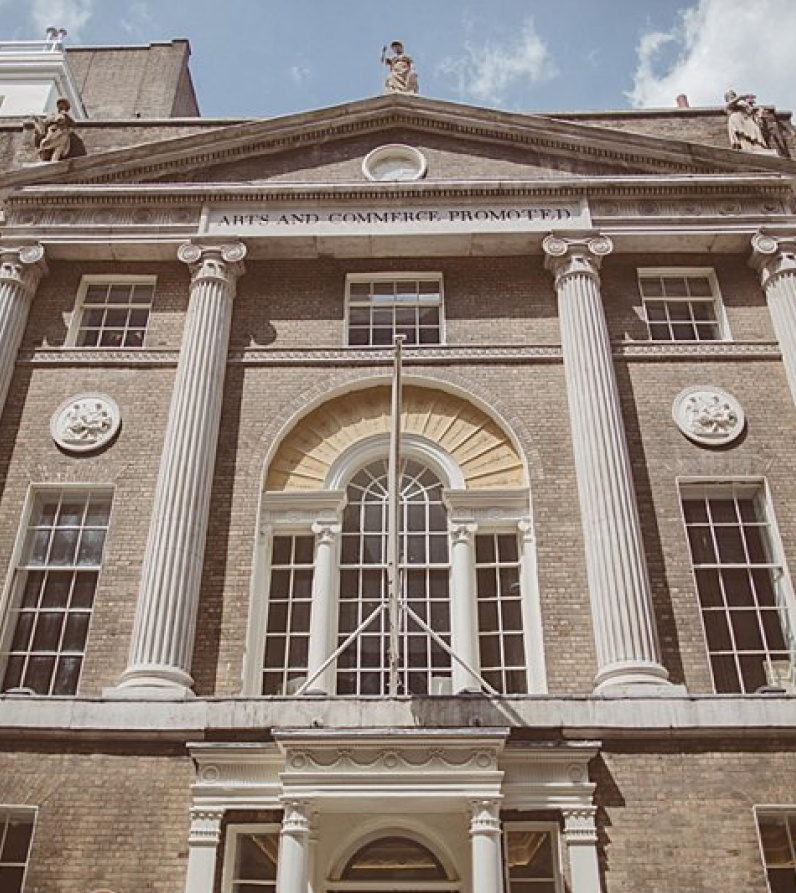
Alongside our capital investment initiative, we propose to run three visionary and participatory programmes over the course of three years (2024-27) including the development of a digital toolkit at the end of this period. These holistic initiatives will engage with a diverse range of audiences, promote learning and inclusivity within the community, and positively impact attitudes towards diversity and inclusion:
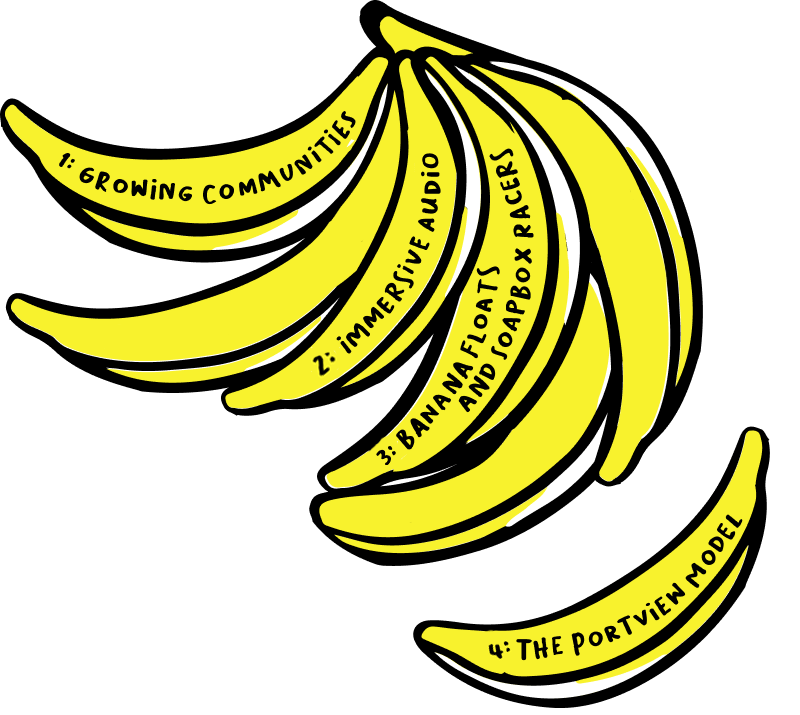
We understand its focus on supporting transformational, long-term future change and yielding clear, meaningful, and sustainable progress for communities. A cornerstone of our mission is to incite shifts in both attitudes and behaviours, consequently eroding the barriers that fuel segregation. This endeavour is paired with a concerted effort to foster inclusivity and unity, making strides towards a more integrated society. Through our innovative and experimental approach we have the ambition and components to deliver on this in the heart of East Belfast. We are providing an opportunity to support us in realising this vision.
Allie Nickel
East
Belfast Resident, Historian and Great Granddaughter of William Henry Richardson
